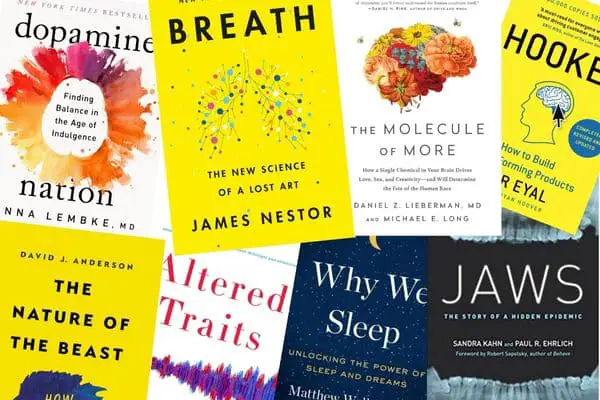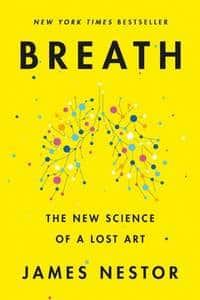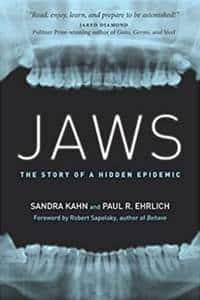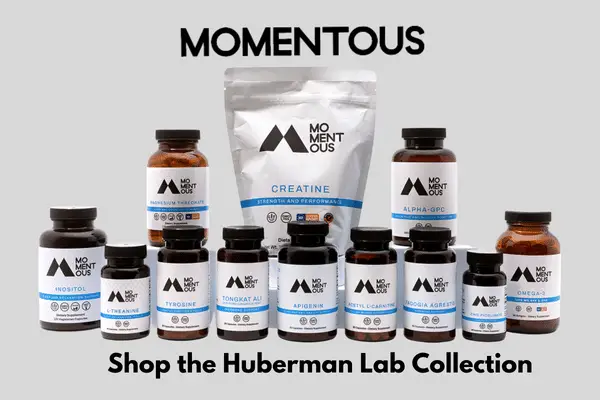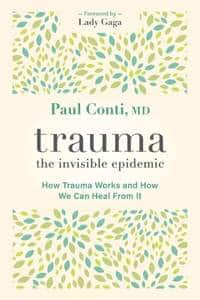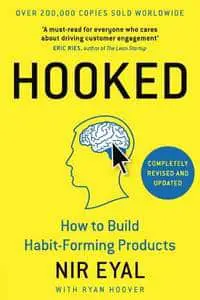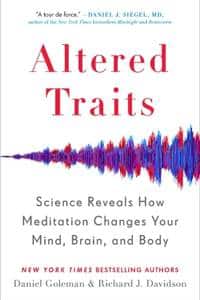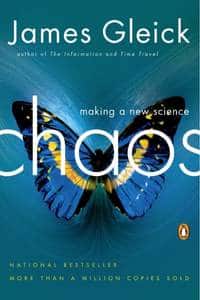Interested in reading some books on neuroscience and brain health? Dr. Andrew Huberman of The Huberman Lab regularly makes book recommendations which I will compile here.
I have organized the books into loose categories and you can use the table of contents to find the topic that interests you. However, some books could definitely have been placed in multiple categories.
Dr. Huberman Recommended Books: Breathing
Breath: The New Science of a Lost Art
- NYT bestseller
- Best book of 2020 by NPR
- Excellent writing
- Science made understandable
- Thorough research
- Actionable breathing exercises
- Amazon link
This book is amazing, I loved it and I have so far leant it out 4 times. James Nestor, a well known science writer, dives deeply into years of research on breathing. He discovers years of knowledge that has completely been lost.
Well written with specific breathing exercises you can follow. It is also a fairly easy read, and the chapters are separated meaning you could skip some parts and just read the portions which interest you.
Although I highly recommend you read the chapter on the dentist and the case for our small jaws being the cause of many of our breathing issues. Whether you agree with this theory or not, it is probably the most entertaining chapter!
This book’s popularity is a testament to both the fascinating subject matter and Nestor’s excellent writing style with a superior ability to turn pretty complicated scientific ideas into an interesting story. I will definitely be reading whatever Nestor writes next.
Tip: You may want to pick up some sugar free gum and some paper surgical tape before you start this book (really).
On the topic of breathing techniques, Dr. Huberman’s lab recently studied breathing techniques and found physiological sighs to be the best quick stress reduction tool.
Jaws: The Story of a Hidden Epidemic
- Scientific experts on the topic
- Applicable science concepts
- Science made understandable
- Engaging writing
- Behavioral insights
- Actionable information
- Amazon link
Have you ever wondered why so many of us need orthodontics? I personally wore braces for years and then needed my wisdom teeth pulled as they put my expensive and hard fought for tooth alignment at risk.
Surely our ancestors did not have a problem of overcrowded crooked teeth to this extent? No they did not, anthropologists have noted straight, uncrowded teeth in hunter gatherer skulls and even in more recent pre-industrial skulls.
This book is a deep dive into the habits that have caused our shrinking jaws, and how this has affected our breathing, creating a domino effect on other aspects of our physical health. (James Nestor touches on this topic in his book Breath as well.)
Tip: Just as with Breath, I recommend you get some sugar free gum and some paper surgical tape before you start this book too.
Dr. Huberman Recommended Books: Emotions
How Emotions Are Made: The Secret Life of the Brain
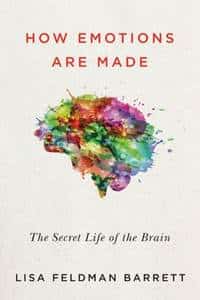
- Bestseller
- Applicable science concepts
- Science made understandable
- Excellent writing
- Behavioral insights
- Actionable ideas
- Amazon link
Dr. Lisa Barrett presents a new theory of how the brain constructs emotions using core systems across the whole brain.
Previously it was believed that emotions are hardwired into the brain and are universally expressed and recognized amongst all cultures.
This new theory reveals that emotions are being constructed in the moment, against the backdrop of a lifetime of experience. This means you have more power to control your emotional life than was previously believed.
The Nature of the Beast: How Emotions Guide Us
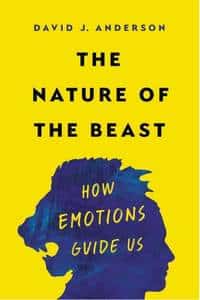
- Neuroscientist expert on the topic
- Applicable science concepts
- Science made understandable
- Excellent writing
- Behavioral insights
- Amazon link
Neuroscientist David Anderson looks at the science underlying aggression, passivity and other states and emotions. The links between isolation and aggression, and mental illness and aggression, are explored
I have not read this yet but seems very timely. I don’t know about your experience but I have found that in the last two years people have been less kind and more aggressive. Perhaps the isolation we have all experienced is a major factor?
Projections: A Story of Human Emotions
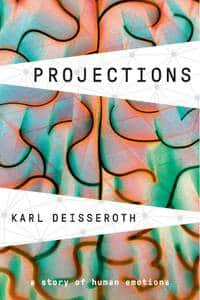
- MD Expert on the topic
- Applicable science concepts
- Science made understandable
- Excellent writing
- Behavioral insights
- Lived experiences
- Amazon link
I have Projections by Karl Deisseroth on my reading list for sure. Deisseroth has been an engaging guest on The Huberman Lab Podcast.
The title refers not only to the psychological defence mechanisms we all use in interacting with others, but also to the actual physical projections of neurons interacting with each other in our brains.
Deisseroth is not only a clinical psychiatrist and but also a neuroscientist whose lab has developed a revolutionary approach to examining neurons in living brains.
He is also married to a neurologist (within the field of medicine psychiatry and neurology have very different historical approaches to the brain) and he seems to have a fresh way of looking at mental illness.

Trauma: The Invisible Epidemic
- MD Expert on the topic
- Science made understandable
- Engaging writing
- Lived experiences
- Alters your viewpoint
- Amazon link
Another book I purchased after hearing the author on Dr. Andrew Huberman’s podcast. Dr. Paul Conti discusses trauma from a personal (the death of his brother) and professional (he is a psychiatrist) viewpoint.
His description of trauma acting like a virus not only completely changed the way I think of trauma, but literally how I have interacted with people in my life.
He explains that trauma causes a person to interact with others differently, sometimes in an extreme manner but also in subtle ways. This can cause a chain reaction of negative interactions, which can lead to trauma affecting a whole community.
By understanding this, and that kindness can also act like a virus, you can make a subtle change in your reactions to others which can compound in ways you would not expect.
I have leant this book out to many friends as well. It seems to be a book that you didn’t realize you needed. I have had to encourage people to read it, only to find out it had a profound affect on their thinking as well.
Highly recommended.
Dr. Huberman Recommended Books: Neuroscience and Dopamine
Dopamine Nation: Finding Balance in the Age of Indulgence
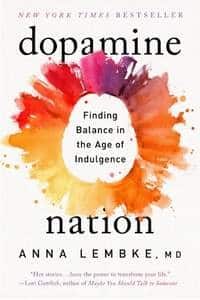
- NYT Bestseller
- MD Expert on the topic
- Applicable science concepts
- Science made understandable
- Excellent writing
- Behavioral insights
- Lived experiences
- Amazon link
I have not read this book yet, but I loved Dr. Anna Lembke’s appearance on The Huberman Lab Podcast.
Dr. Andrew Huberman is well known to discuss dopamine, its relation to reward and motivation, and protocols to help us maximize our reward system in daily life.
Dr. Huberman says this book is in his ‘top 3 of all time’, so I had better add it to my reading list!
The Molecule of More: How a Single Chemical in Your Brain Drives Love, Sex, and Creativity-and Will Determine the Fate of the Human Race
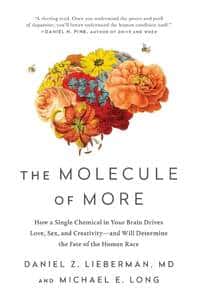
- Award Winning
- MD Expert on the topic
- Applicable science concepts
- Science made understandable
- Engaging writing
- Behavioral insights
- Amazon link
Can’t get enough of learning about dopamine? Well here is another Huberman recommended book dedicated to the topic.
Dr. Andrew Huberman often clarifies that dopamine is integral for motivation, and this topic is well covered in The Molecule of More.
From our very survival to the pursuit of success and scientific progress, dopamine is the driving force. But dopamine also explains our propensity to gamble, fail a diet and waste our time in addictive pursuits. Dr. Huberman Recommended Books: Play and Creativity
Play It Away: A Workaholic’s Cure for Anxiety
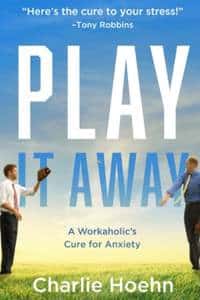
- MD Expert on the topic
- Applicable science concepts
- Actionable information
- Engaging writing
- Behavioral insights
- Lived experience
- Amazon link
A self described workaholic who burnt out, Charlie Hoehn describes himself as living in fear with shallow breathing, tension in his gut and chest pains..
Despite being super successful he was actually in a physical and mental hell from working too hard (I can totally relate!).
He discusses how you can use play to calm your nervous system, which makes total sense. By engaging your body in play, you physically tell your brain that you are safe.
This book is an engaging read with actionable advice on how to reduce anxiety and to get back to living in the moment and having fun.

The Creative Act: A Way of Being
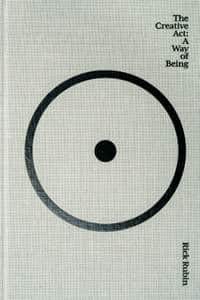
- Bestseller
- Inspiring
- Classic
- Excellent writing
- Behavioral insights
- Actionable ideas
- Amazon link
Rick Rubin is a legendary music producer, known for creating an environment that fosters the creativity in artists. In The Creative Act, written over many years, he shares his wisdom on how we can transcend our self-imposed limitations to reach surprising achievements.
Rick Rubin was featured on The Huberman Lab podcast (Rick Rubin: How to Access Your Creativity) in 2023.
“I set out to write a book about what to do to make a great work of art. Instead, it revealed itself to be a book on how to be.” —Rick Rubin
Dr. Huberman Recommended Books: Time, Circadian Rhythm and Productivity
Deep Work: Rules For Focused Success In A Distracted World
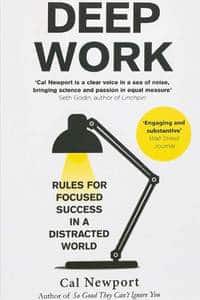
- Award Winning
- Applicable science concepts
- Engaging writing
- Behavioral insights
- Actionable ideas
- Amazon link
In Deep Work Cal Newport looks at the effects the increase of multitasking has on the quality of our work. The focus on quantity has reduced our ability to do ‘deep work’ or quality work.
He give actionable advice based on neuroscience and psychology. He presents 4 rules which you can use to change your habits to be able to overcome distractions and do ‘deep work’.
The Secret Pulse of Time: Making Sense of Life’s Scarcest Commodity
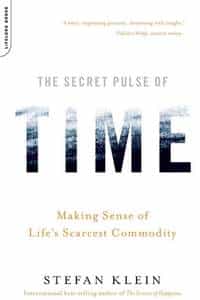
- Bestseller
- Applicable science concepts
- Science made understandable
- Excellent writing
- Behavioral insights
- Actionable ideas
- Amazon link
Award-winning science writer Stefan Klein looks at the concept of time. From how the passage of time seems to change depending on how engaged we are, how we cannot seem to find time to relax, and how we fail to master our own time.
By looking at neuroscience, psychology, philosophy and physics Klein has come up with an ‘operating manual’ with practical tips to regain control of your time.
The Circadian Code: Lose Weight, Supercharge Your Energy, and Transform Your Health from Morning to Midnight
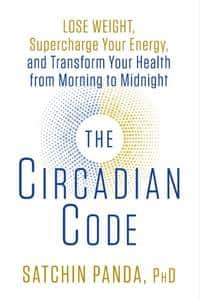
- Bestseller
- Applicable science concepts
- Science made understandable
- Excellent writing
- Behavioral insights
- Actionable ideas
- Amazon link
Dr. Huberman speaks frequently on the need to understand and respect our circadian rhythms, particularly by getting early morning light exposure.
This book is an in-depth look at the circadian clock and how it rules our lives, without most of us even realizing it. There is a specific plan to reset your body clock which can improve sleep, help with weight loss, and prevent multiple diseases.
Dr. Panda’s research was mentioned on the Huberman Lab podcast episode How Our Hormones Control Our Hunger, Eating & Satiety.
Hooked: How to Build Habit-Forming Products
- Bestseller
- Behavioral insights
- Thorough research
- Excellent writing
- Practical information
- Info for building habit protocols
- Amazon link
In this book author Nir Eyal looks at how successful companies ‘Hook’ us.
By studying the products and technologies that hook us, Eyal has come up with the ‘Hook Model’. Extremely useful information for any start up founder or entrepreneur, but absolutely actionable for daily life as well.
Understanding this four step process lets you reverse engineer and apply it to your own life to create habits that stick.

Dr. Huberman Recommended Books: Altered Conciousness (Sleep, Meditation, Psychedelics)
Why We Sleep: Unlocking the Power of Sleep and Dreams
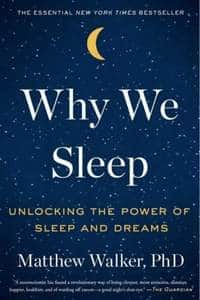
- NYT Bestseller
- Scientific expert on the topic
- Behavioral insights
- Alters your viewpoint
- Actionable ideas
- Amazon link
Dr.. Huberman consistently tells us that ‘sleep is the foundation of mental and physical health’. Why We Sleep was actually one of the first books he recommended on The Huberman Lab podcast.
Dr. Walker was a guest on an early podcast (Dr. Matthew Walker: The Science & Practice of Perfecting Your Sleep) and in this book he explains how sleep is needed to regulate our emotions, have a healthy immune system and calibrate our metabolism. Dreaming is necessary to process our experiences, melding memories with our day to day experience and inspiring our creativity.
After reading this book you will have a high desire to put Dr. Walker’s actionable steps to use for a better nights sleep.
Wherever You Go, There You Are: Mindfulness Meditation in Everyday Life
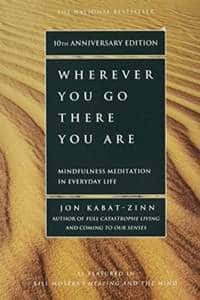
- Bestseller
- Classic
- Expert on the topic
- Behavioral insights
- Actionable ideas
- Amazon link
This book is a continuous bestseller and considered the classic book on mindfulness for good reason. It is a straightforward guide on mindfulness, the ageless wisdom on how to find peace. It covers the foundational principles, and how you can incorporate mindfulness into your daily life for physical, mental and emotional well being.
Jon Kabat-Zinn, PhD is a scientist, and meditation teacher. As a founding director of the Center for Mindfulness in Medicine he was at the forefront of bringing mindfulness into the mainstream of medicine and society.
Altered Traits: Science Reveals How Meditation Changes Your Mind, Brain, and Body
- NYT bestseller
- Thorough research
- Science made understandable
- Fully answers ‘Why should I meditate?’
- Applicable info to develop protocols
- Amazon link
I cannot recall if I first heard about this book on The Huberman Podcast or from another source.
However, it was the first book I read on this list. If you are interested in meditation, but like me want to learn about the scientific evidence, then this is your book.
I listened to it on as an audio book early on in my burnout recovery. It helped me force myself to keep up with a meditation routine, which I suspect has made a huge difference in my recovery.
To be honest, I think I may look at it again as I have been thinking more lately of how I can pursue a more focused meditation practice.
The Dream Drugstore: Chemically Altered States of Consciousness
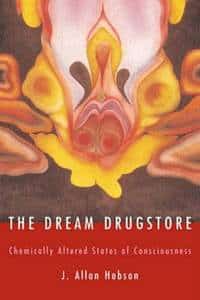
- Scientific expert on the topic
- Thorough research
- Applicable science concepts
- Science made understandable
- Behavioral insights
- Amazon link
This book looks at the brain’s chemistry and the mechanisms of chemically altered states of consciousness. Based on knowledge of how our brain chemistry is balanced when we are awake and how that balance shifts when we fall asleep and dream, Dr. Hobson examines how psychedelic drugs work to disturb that balance and the link to similar imbalances in depression and schizophrenia.
Hobson describes drugs used to counteract anxiety and insomnia, to raise and lower mood, and to eliminate or diminish the hallucinations and delusions of schizophrenia. He also discusses psychedelic drugs, narcotic analgesia, and natural drugs, and considers the distinctions between legitimate and illegitimate drug use.
Dr. Huberman Recommended Books: Diet and Exercise
The 4-Hour Body: An Uncommon Guide to Rapid Fat-Loss, Incredible Sex, and Becoming Superhuman
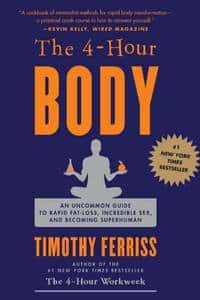
- Inspirational
- Famous author
- Behavioral insights
- Applicable science concepts
- Lived experience
- Actionable ideas
- Amazon link
This book is pretty fun. It is part of the reason Tim Ferriss is so well known. Basically Tim becomes a human guinea pig for various health treatments and recounts this in detail.
It is a lot of anecdotal evidence, and some protocols are unusual, but it is pretty fun to flip through it. You will definitely find something useful, or even something that completely changes the way you approach a certain aspect of self care and personal improvement.

Finding Ultra: Rejecting Middle Age, Becoming One of the World’s Fittest Men, and Discovering Myself
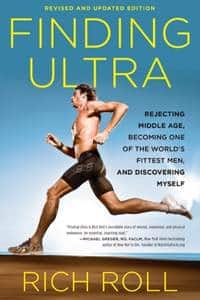
- Inspirational
- Famous author
- Engaging story
- Behavioral insights
- Lived experience
- Actionable ideas
- Amazon link
At the age of 40, Rich Roll makes a major life change. He goes from overweight to an ultra-marathon runner and is actually featured in Men’s Fitness as one of the world’s 25 fittest men.
He describes his experience with addiction and his complete life shift and health transformation that included diet changes to a plant based diet, a daily exercise regimen.
The Salt Fix: Why Experts Got It All Wrong – and How Eating More Might Save Your Life
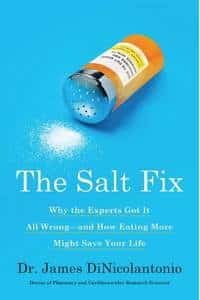
- MD Expert on the topic
- Applicable science concepts
- Science made understandable
- Behavioral insights
- Alters your viewpoint
- Actionable information
- Amazon link
Salt is bad for us right? Everyone knows that!
Well…. perhaps we need a more nuanced view on salt and electrolytes as an essential component in our diet.
Dr. DiNicolantonio reviewed the literature (more than five hundred publications!) and concluded that the vast majority of people actually do not need to watch their salt intake.
The Salt Fix explains the risks of having too little salt in our diets, how you can add salt into your diet, and gives a specific 5-step program to determine your personal ideal salt intake.
Spark: The Revolutionary New Science of Exercise and the Brain
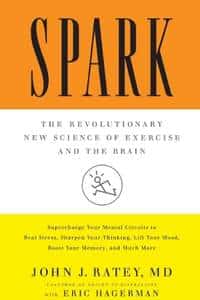
- MD Expert on the topic
- Applicable science concepts
- Science made understandable
- Thorough research
- Behavioural insights
- Amazon link
Written by Dr.John Ratey (one half of the famous duo of doctors with ADHD who wrote the ADHD classic Delivered from Distraction and have come up with the new concept VAST (Variable Attention Stimulus Trait) for ADHD traits in the new ADHD 2.0 book) Spark is a detailed look at how important exercise is for brain health.
This is for those of you who really like a deep dive into the science. Dr. Ratey, MD presents the research and case studies that show that exercise really is a potent medicine. Exercise has beneficial effects on everything; depression, ADHD, addiction, aggression, menopause & Alzheimer’s.
Dr. Huberman Recommended Books: History of Medicine and Science
Prince of Medicine: Galen in the Roman Empire
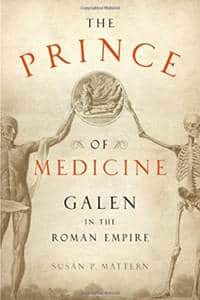
- History of Science
- Applicable science concepts
- Science made understandable
- Engaging writing
- Portrait of humanity
- Amazon link
This books looks into the ancient physician Galen and the origins of Medicine. A focus is on the period of time in the Roman Empire where Galen deals with an outbreak of smallpox.
Dr. Huberman says he loves this book for the deep, highly detailed dive into how we arrived at modern medicine.
On the Move: A Life
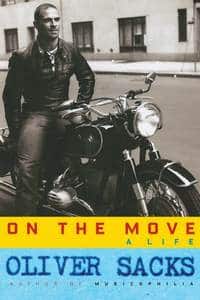
- MD Expert on the topic
- History of Medicine
- Applicable science concepts
- Science made understandable
- Excellent writing
- Psychiatric insights
- Lived experiences
- Amazon link
On the move is a memoir of Oliver Sacks, a well known writer and influential neurologist.
This book covers his obsession with motorcycles, his drug addiction and his career as a neurologist and interactions with his patients. (In the movie Awakenings Robin Williams character is based on Dr. Sacks).
Sacks links his energetic physical exertions (weight lifting and swimming) to his cerebral passions. (Which by the way reminds me of Dr. Dodson’s view of ADHD that looks at ADHD hyperactivity as not just physical, but also cerebral and emotional)
Chaos: Making a New Science
- Bestseller
- Pulitzer Prize finalist
- Science made understandable
- Excellent writing
- Alters your viewpoint
- Amazon link
Chaos by James Gleick is the first popular book about chaos theory, written in a similar science for popular culture style as Stephen Hawking or Carl Sagan.
Told chronologically, Gleick introduces readers to the key figures and scientific discoveries in the field of chaos theory such as the well known ‘butterfly effect’ and the concept of fractals. I
t should be noted that this book has been criticized for omitting the foundational contributions of female scientists within the field.
Dr. Huberman Recommended Textbooks
Principles of Neurobiology 2nd Edition
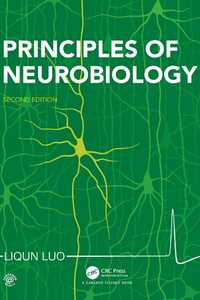
- Dr. Huberman recommended textbook
- Single author textbook
- Applicable science concepts
- Thorough research
- Higher level science
- Amazon link
Dr. Huberman’s recommended neuroscience textbook is Principles of Neurobiology by Liqun Luo. It is suggested as the best beginner textbook for those interested in the topic.
Principles of Neurobiology illustrates how scientific progress is made and is written for upper-level undergraduate and graduate students. The textbook covers electrophysiology to molecular genetics to systems level concepts in neurobiology.
An Introduction to Behavioral Endocrinology
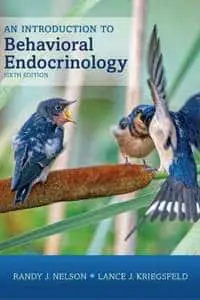
- Dr. Huberman recommended textbook
- Applicable science concepts
- Thorough research
- Science made understandable
- Behavioral insights
- Amazon link
Dr. Huberman recommends this text book for understanding behavioral endocrinology, a topic he is often asked about.
The text describes interactions among hormones, brain, and behavior from a historical perspective, covering key theories and important hypotheses.
The focus is the concept that hormones affect behavior in animals by influencing one or more of three components: input (sensory or perceptual input), the central processing mechanisms of the nervous system, and output (effectors or peripheral structures).
The book strives to be both thorough in the topics covered but also accessible for non-biological science students.
- Physiological Sighs: Benefits of the Huberman Lab Tested Breathing Technique
- The Huberman Sleep Cocktail: The Simple Mix That Beats Insomnia
- Dr. Andrew Huberman’s Recommended Testosterone Supplements
- Dr Andrew Huberman Book Recommendations: Top Picks
- Huberman Lab Supplement: Is Athletic Greens Worth It?
